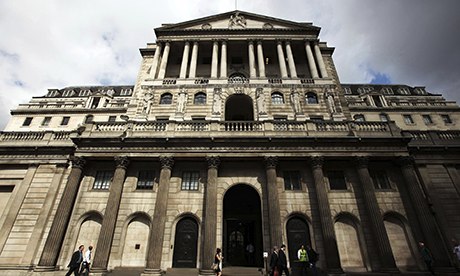
House prices in the UK have returned to their pre-crisis levels according to some figures
Two major lenders have
reported a strong uptake in the first month of the government's extended
Help to Buy mortgage guarantee scheme.
The scheme is designed to encourage lenders to offer mortgages with deposits as low as 5%.
But critics are concerned it could help to create a UK housing bubble.
RBS and its subsidiary NatWest, and Halifax - owned by Lloyds Banking Group - are among the few lenders to offer mortgages under the government's extended scheme.
The first phase of Help to Buy was launched in April, but only provided help to first-time buyers buying new-build homes. The extended scheme applies to all buyers and all types of homes.
RBS said it had so-far approved 169 of its 1,075 applications, and five customers had already completed their purchases.
It said the majority of applications had come from young couples with a joint salary of less than £50,000. The average price of the property being bought was £167,565.
Halifax said more than 80% of its applications under the scheme were from first-time buyers.
It said the majority of applications had come from outside London and the south-east of England, where property prices are rising fastest.
It also said that five purchases had so-far been completed.
The government welcomed the figures, saying that the scheme
was supporting "responsible lending", helping borrowers would can afford
mortgage repayments, but not a large deposit.
"Four weeks in and its clear that Help to Buy is already delivering," said Prime Minister David Cameron.
"Most Help to Buy applicants are first-time buyers, young and have a roughly average household income. This is all about helping hardworking people get on the first rung of the property ladder."
But critics have expressed concern that the scheme could create a bubble in the housing market, making home affordability an even bigger problem.
The latest figures from the Office for National Statistics suggest average house prices in the UK have now recovered from the slump seen during the recession.
Figures from Halifax suggest house prices have yet to hit their 2007 peak, but have risen steadily for the last nine consecutive months.
Nationwide Building Society says prices are currently 5.8% higher than a year ago.
But estate agents argue that much of those price rises are seen in London and the south-east of England, while prices in other parts of the country are rising more slowly, or in some cases actually falling.
Article Source: http://www.bbc.co.uk/news/business-24892649
FREE £197 Property Download "5 Instant Ways to Raise Finance For Your Property Deals" http://tiny.cc/B-FreeGiveAway
"Four weeks in and its clear that Help to Buy is already delivering," said Prime Minister David Cameron.
"Most Help to Buy applicants are first-time buyers, young and have a roughly average household income. This is all about helping hardworking people get on the first rung of the property ladder."
But critics have expressed concern that the scheme could create a bubble in the housing market, making home affordability an even bigger problem.
The latest figures from the Office for National Statistics suggest average house prices in the UK have now recovered from the slump seen during the recession.
Figures from Halifax suggest house prices have yet to hit their 2007 peak, but have risen steadily for the last nine consecutive months.
Nationwide Building Society says prices are currently 5.8% higher than a year ago.
But estate agents argue that much of those price rises are seen in London and the south-east of England, while prices in other parts of the country are rising more slowly, or in some cases actually falling.
Article Source: http://www.bbc.co.uk/news/business-24892649
FREE £197 Property Download "5 Instant Ways to Raise Finance For Your Property Deals" http://tiny.cc/B-FreeGiveAway

